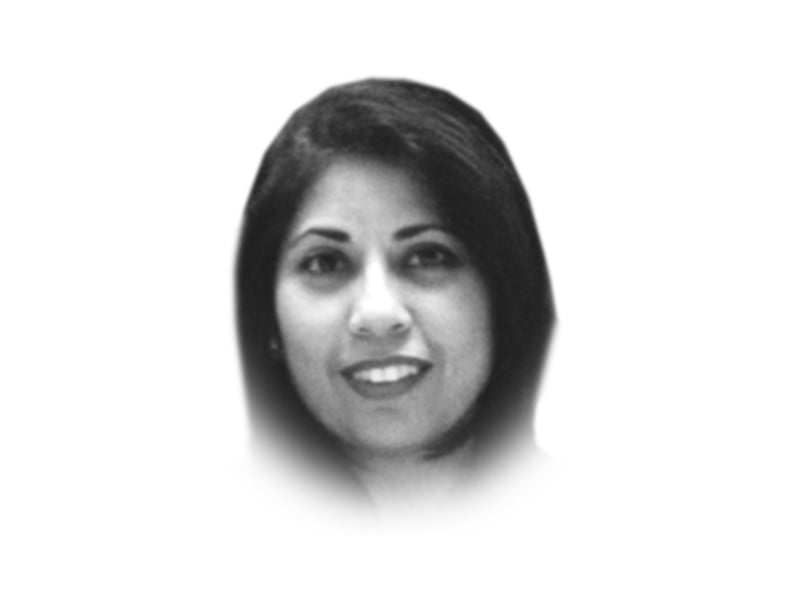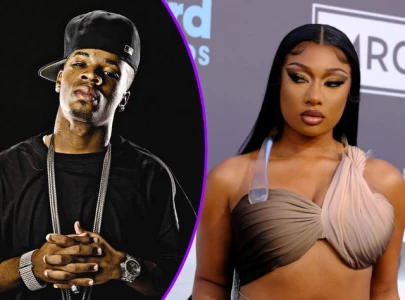
While his death was imminent since nearly a year now, the actual happening was bound to trigger the emotional expression that has been released. Tributes from presidents — from Barack Obama to Mamnoon Hussain — were expected and probably prepared much in advance for such an eventuality. It was the spontaneous sentiment of the ordinary people that was more powerful as individuals began remembering the many different ways in which Mandela and his struggles had affected them. Some South Africans, who had lived and fought during and against apartheid, were too emotional to even comment.
I have heard first hand stories of what life in apartheid South Africa was and what ‘Madiba’ — as he was called by the people of his soil — meant to those who were in some way connected to him. To South Africans, he was not just the father of their free nation but also an icon of all that was morally right and just.
In Canada, many South Africans who had fled from apartheid rule, had also rallied hard for his release, asking the Canadian government to pressurise South Africa into ending its anti-apartheid policies. Mandela then became the first 'foreigner' to have been given Honorary Citizenship of Canada. Only two others have been awarded that honour since Mandela — Dalai Lama and Aung San Suu Kyi.
Obituaries summarising his gigantic contributions to humanity will be taking up news space for many days as they detail his labours leading to the emancipation of more than 30 million black and coloured South Africans. There is just so much to tell of his life, be it his legacy of peaceful resistance lasting 27 years in captivity or his work of rebuilding South Africa’s segregated social order.
It’s perhaps, noteworthy that Nelson Mandela’s death happened the same year that America celebrated the 50th anniversary of its Civil Rights movement. The American Civil Rights story, too, has many poignant tales woven around numerous courageous individuals who stood up for freedoms which seemed like an impossibility to their future generations.
The year 2013, in fact, seemed to have been a particular year of milestones in America, as the 50-year anniversary of John F Kennedy’s (JFK) assassination and death was also observed this year. For the American public, that was a tragedy of enormous proportions at the time which many could never get over. Men and women had wept openly on streets and the shock had brought Americans together, even making them forget party differences.
The conspiracy theories that followed the JFK assassination are, to this day, the subject of movies and books, feeding the American public and even the world imagination. Since several weeks now, documentaries are continuing on Canadian channels as well, detailing the events of November 22, 1963 in Dallas, when Oswald aimed the shot at President Kennedy’s head.
There is something about death and assassination which holds fascination for people. Especially violent death as it triggers a response in every individual who hears about it. For Pakistanis, the day Ms Benazir Bhutto was shot is still crystal clear and no one has forgotten what they were doing at that moment, when they heard the news and mayhem broke across the country.
Mandela’s death, however, is not one that will be connected in any way with violence. He will be remembered, instead, for his peaceful teachings, diplomatic wisdom, unfailing courage and his almost stubborn perseverance for justice in an environment that was conflictingly violent and extremely unjust.
Before the invasion on Iraq, Mandela's vehement stance against war must still sting America. He had categorically stated, "If there is a country that has committed unspeakable atrocities in the world, it is the United States of America.”
It was befitting that the crowd that gathered on Thursday night at the Mandela home in Johannesburg, after his death, was a multiracial gathering singing liberation songs. And for once, South African President Jacob Zuma, who otherwise is a sorry mass of political and moral misconduct, had some profound words to say, “Our nation has lost its greatest son; our people have lost a father … This is our moment of greatest sorrow … God bless Africa.”
Published in The Express Tribune, December 8th, 2013.
Like Opinion & Editorial on Facebook, follow @ETOpEd on Twitter to receive all updates on all our daily pieces.
COMMENTS (7)
Comments are moderated and generally will be posted if they are on-topic and not abusive.
For more information, please see our Comments FAQ




1730884134-0/BeFunky-collage-(26)1730884134-0-165x106.webp)






I can't recall anyone in D.C. remembering what Mandela said about Iraq, neither 10 years ago nor today. I don't think anybody felt "stung", nor was American admiration of Mandela and what he accomplished lessened a bit.
@harkol: "Pakistan has a way of forgetting its heroes!"
While I echo your sentiment, I believe forgetting its' heroes is not the exclusive domain of Pakistan. I do not see any acclamation of Subhash Chandra Bose, Rani Lakshmibai of Jhansi, the martyrs of the Indian War of Independence of 1857, or Tipu Sultan of Mysore in India. Lately I do hear some reluctant murmurs; however feeble they maybe, remembering the martyrs of Jallianwala Bagh. Actually Indians quite readily accept the 1857 war by the name given by the occupiers as 'mutiny.' Probably because predominantly it was fought by the people of the wrong religion.
“If there is a country that has committed unspeakable atrocities in the world, it is the United States of America.” When you write the above Truth, you need to be careful. Very careful. You are only 80 miles away by road and even lesser across Lake Ontario from the USA. Even in Canada you are not free to speak the Truth. Are you? Have you not heard of someone called Harper ? Be careful then. One Irish politician has already sounded the warning. He said "Whatever happened to the Irish people in Ireland, is going to happen to people everywhere." Do we not see it happening today, even in Canada?
"He will be remembered, instead, for his peaceful teachings, diplomatic wisdom, unfailing courage and his almost stubborn perseverance for justice in an environment that was conflictingly violent and extremely unjust." +++++++++++++++++++++++++++++++++++++++++++++++++++++++++++++++++++++ Like Gandhi, his message will be remembered forever.
"Before the invasion on Iraq, Mandela’s vehement stance against war must still sting America." +++++++++++++++++++++++++++++++++++++++++++++++++++++++++++++++++++++++
Yes, it still stings. That's why three American Presidents will be attending Mandela's services :).
@Parvez:
Yes. I wondered that too. Pakistan has a way of forgetting its heroes!
Nelson Mandela is easily the 'mahatma' of my lifetime. He took a different path to such a sainthood than Gandhi, but their essence was the same. An indomitable spirit that stood up against all odds and stood for what Gandhi had called 'Satya' (the truth). The truth that both believed in - "all men are equal". They rejected race, caste, religion as basis for nationhood or even interactions with fellow men. In otherwords, for them identity was more about humanism than narrower ones that of nationality, race, caste or religion. Hope south africa does a better job of using Mandela's 'north star' than we have done in India with Gandhi's!
I see some traits of such a strident, indomitable, fearless spirit of standing up to right human spirts in Malala. She, a staunch Muslim, could recognize there is more to humanity than just blind following of narrow interpretations of a religion. She has stood up & spoke against such customs or actions which are against universal human rights while facing overwhelming threat of violence. She not only speaks against Taliban, she also speaks against the violence that is brought upon by drones. This ability to see beyond one's narrow interests to see the bigger picture, and to understand the problem from an universal perspective is what makes Malala special.
Hope Pakistanis can own her. If they don't - its their loss. World already does.